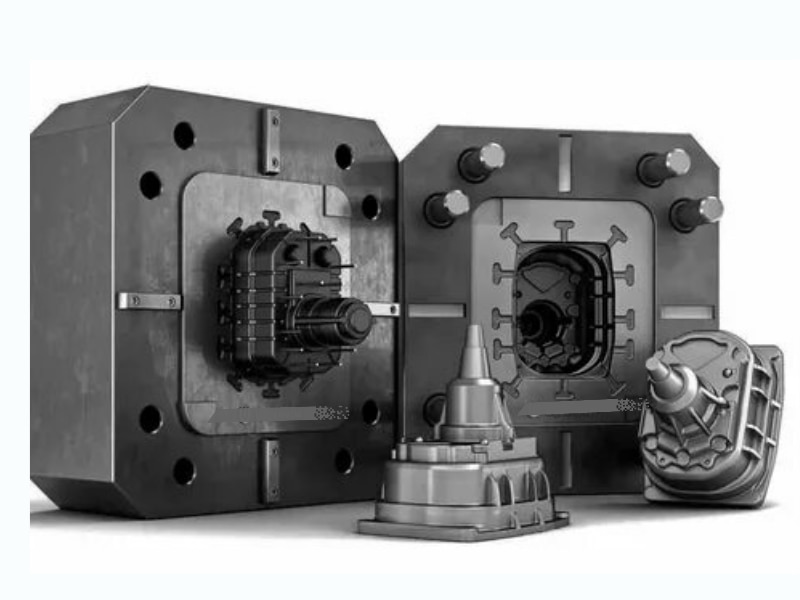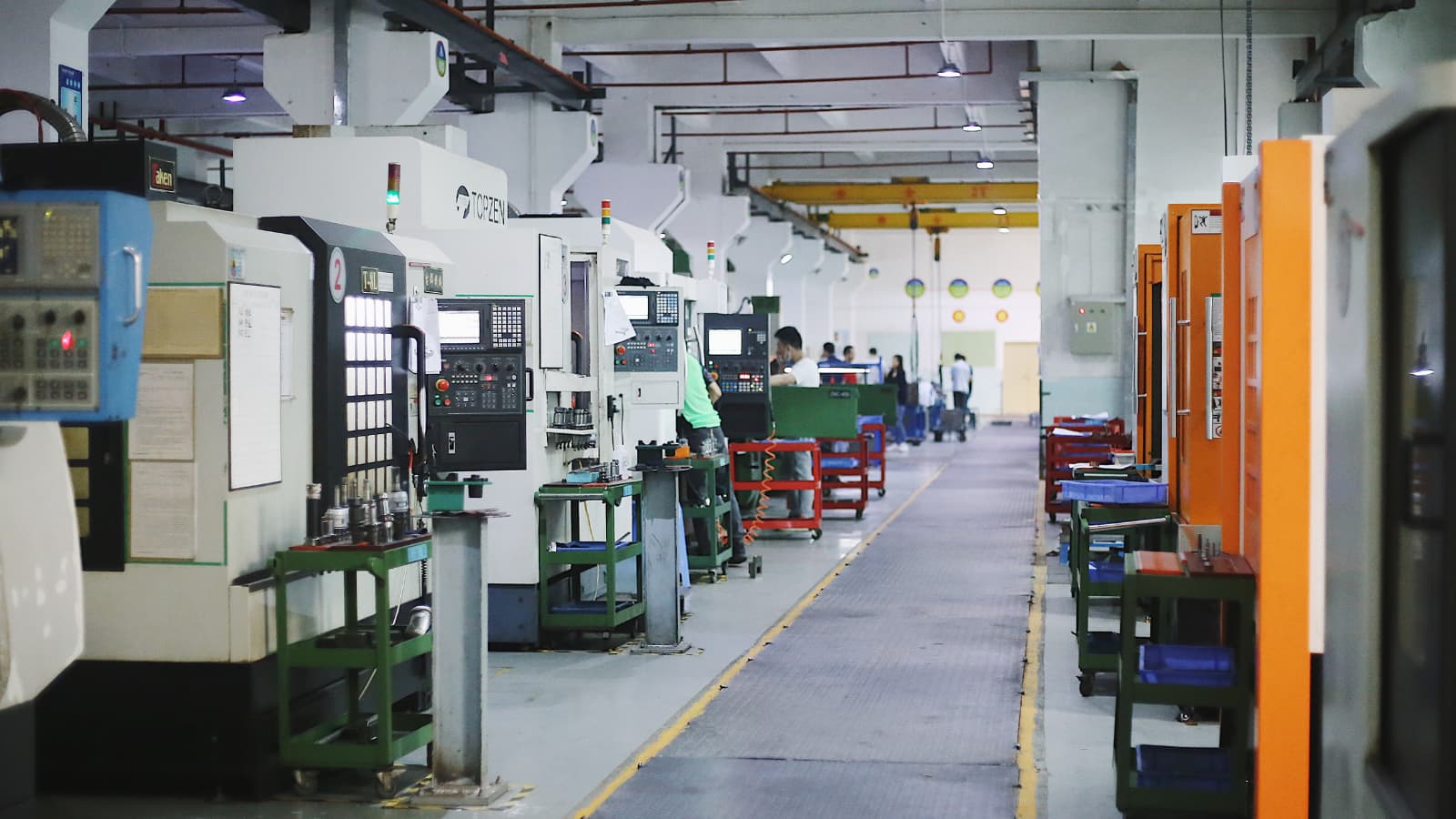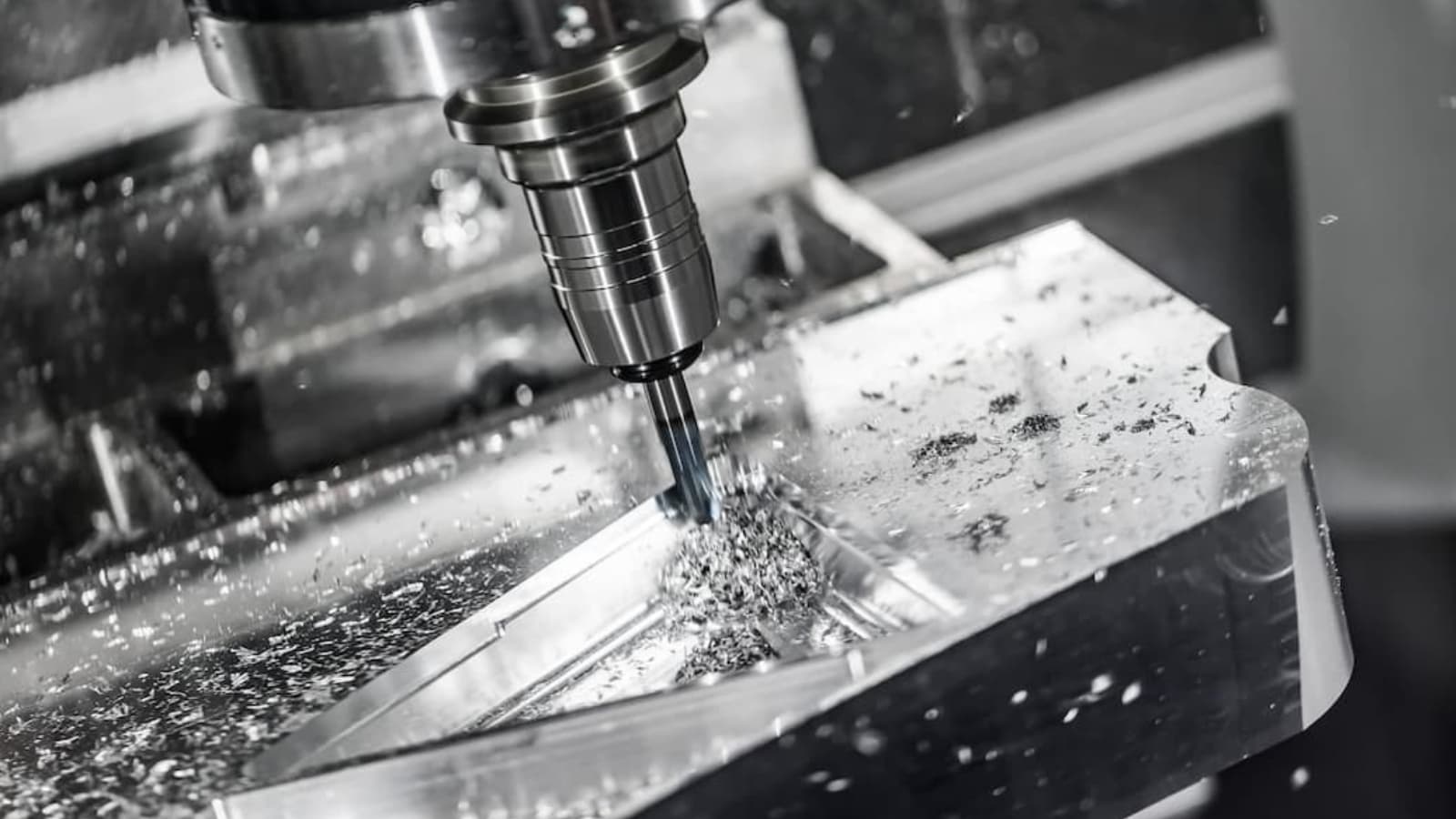Medical grade plastics are applicable in making medical products such as MRI casings, plastic syringes, and prosthetics. These plastics are suitable for making medical devices due to biocompatibility, especially for medical components that come in contact with the human circulation system. They are also malleable, hard, precise, and compatible with injection molding and 3D printing processes.
Every medical-grade plastic in the market has unique inherent properties similar to conventional plastic polymers. However, they are different in biocompatibility since conventional plastic polymers don’t factor in biocompatibility. Choosing the right medical-grade plastic for your product can be challenging. But no worry, we will introduce the general types of medical plastics, and their advantages then we will bring you a list of medical grade plastics you can use for your project.
Is Medical Grade Plastic Safe?
Yes, medical-grade plastics are safe for making medical components. Medical products have a single goal: “to prevent and treat diseases and disease-causing organisms’ growth.
Properties responsible for safety include non-permeability, chemical/heat resistance, hardness, and, most importantly, biocompatibility. By being non-permeable, these plastic polymers do not support the growth of disease-causing organisms. Also, they are sterilizable due to chemical and heat resistance. Consequently, medical graded polymers are suitable for making products used in transporting bio-hazardous materials that can spread dangerous infections.
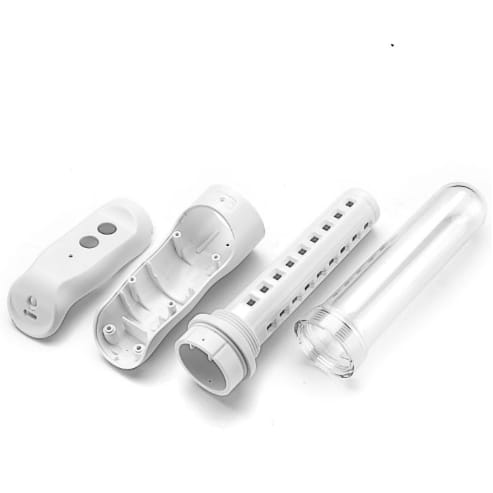
Why Choose Polymers for Medical Applications
Medical components manufacturers use several materials to make parts used in their products. Of the different materials used, plastics are becoming a top choice. Below are a few reasons why many manufacturers prefer plastic polymers to metals.
· Inherent Properties
Plastic polymers are durable, strong, chemical resistant, and heat resistant. Therefore, they are suitable for medical components that can withstand constant sterilization. Some plastic polymers also exhibit hardness and tensile strength that rival metals. For example, nylon has a high tensile strength of 12400 psi. Plastics have lesser costs and are currently replacing metals in making components for medical devices.
· Excellent Manufacturing Property
Plastic polymers have high machinability and are compatible with several manufacturing processes. Depending on the result desired, common manufacturing processes include injection molding or 3D printing, blow molding, and sometimes CNC machining due to the ability to mass-produce without losing accuracy and precision.
· Recyclable
Thermoplastics (a type of plastic) are recyclable since you can melt and shape the plastic polymers as much as possible. Therefore, unused parts during manufacturing can be reused. This reduces wastage of materials and improves cost-effectiveness.
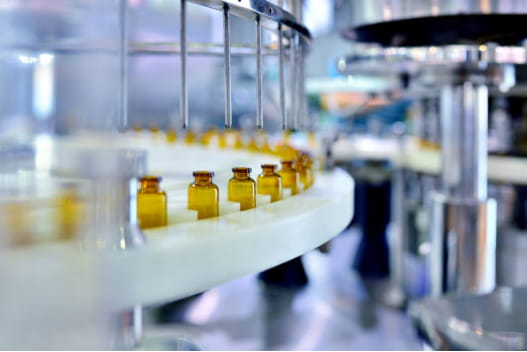
7 Types of Common Thermoplastics in Medical Injection Molding
Many medical-grade plastics are applicable in different capacities in the medical industry.
- Thermoplastics: plastic polymers that soften on heating and then harden on cooling.
- Thermosets: plastic polymers that become permanently solid after curing.
- Elastomers: viscoelastic (viscous and elastic) polymers and can regain their original shape and size after being stretched.
However, thermoplastics are the most common type. Below are seven common thermoplastics used in making medical parts.
· Polyethylene
Polyethylene or polythene is a plastic polymer with a linear structure of monomeric ethylene formulated in high or low densities. Important types include high modulus polyethylene, high-density polyethylene, cross-linked polyethylene, and low-density polyethylene.
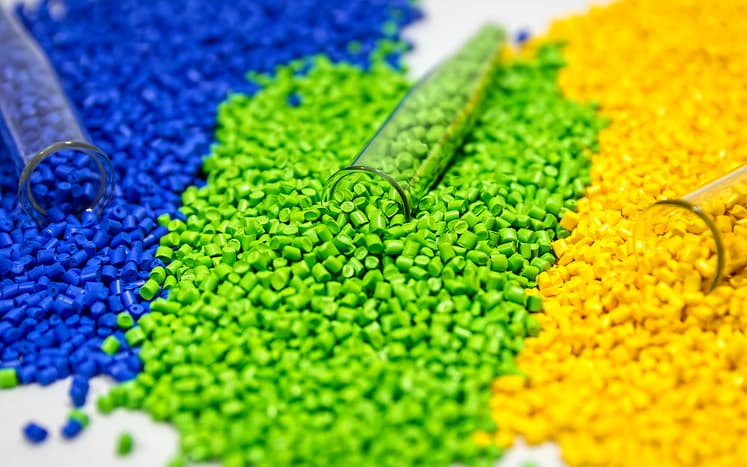
General properties include high mechanical strength, ductility, and melting point. Density polyethylene has a melting point of 1200C to 1800C, while low-density polyethylene has a melting point of 1200C to 1800C.
Polyethylene is a top medical grade plastic due to its cost-effectiveness, impact resistance, corrosion resistance, and solid structural integrity when exposed to frequent sterilization cycles. It is applicable in making prosthetics due to being biologically inert and non-degradable in the body.
· Polypropylene
Polypropylene is a white, rigid, and chemically resistant polymer produced by chain-growth polymerization of propylene and ethylene. The medical-grade polymer is resistant to stress, cracking, impact, and fatigue, and it has a high melting point (about 1710C).
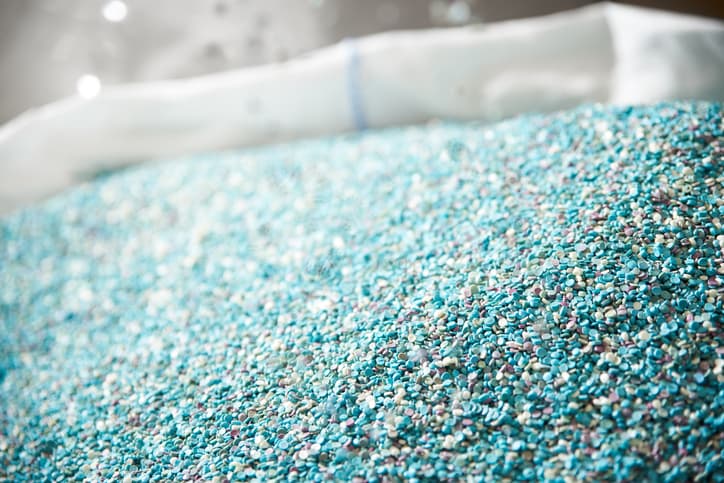
Due to its properties, it provides enough resistance to the heat produced in the autoclave. Therefore, it is applicable in making plastic components for medical devices such as disposable syringes, oxygenator membranes, prescription bottles, connectors, and finger-joint prostheses.
· Polymethyl methacrylate
Polymethyl methacrylate (PMMA) or acrylic glass is a polymer produced from methyl methacrylate. It is rigid, tough, durable, UV-light resistant, weatherproof, and has an excellent light transmission with coloring options. It also has a high level of chemical resistance, a property that attracts many medical component manufacturers.
Polymethyl methacrylate has a high melting point (200-250°C) and is compatible with blow molding or extrusion. The medical-grade product is applicable in making endoscopic medical parts.
· Polyvinyl chloride
Polyvinyl chloride (PVC) is a medical polymer known for its versatility. It is a white, rigid, flame-resistant, chemical-resistant polymer made by chlorinating PVC polymers. The two general forms of PVC used to make medical plastic products are flexible and rigid PVC.
Flexible PVC is dense, inexpensive, and readily available. It is applicable in areas where sterility is a priority. Rigid PVC is durable, strong, and hard. The two types of PVCs are suitable for manufacturing devices for hemodialysis, tubing, cardiac catheters, and artificial limb materials.
· Polyamide
Polyamide or nylon is a natural and synthetic polymer made by linking the amino group of a molecule to the carboxylic group of another molecule. The material is known for its tensile strength, high abrasion resistance, chemical resistance, anti-corrosive properties, and flexibility.
It is manufacturable by CNC machining, injection molding, and 3D printing. Also, you can improve its properties, such as tensile strength, by combining it with other materials. Examples of polyamide medical parts include stent delivery systems and prescription bottles.
· Acrylonitrile butadiene styrene (ABS)
Medical grade ABS plastic is made by polymerizing styrene and acrylonitrile in the presence of polybutadiene. The polymer has tensile strength, high abrasion resistance, chemical resistance, and anti-corrosive properties. Compatible manufacturing processes include injection molding, blow molding, and extrusion.
ABS is highly rigid and can replace metals in certain conditions. Therefore, the medical industry uses it in making products such as non-absorbable sutures and tracheal tubes.
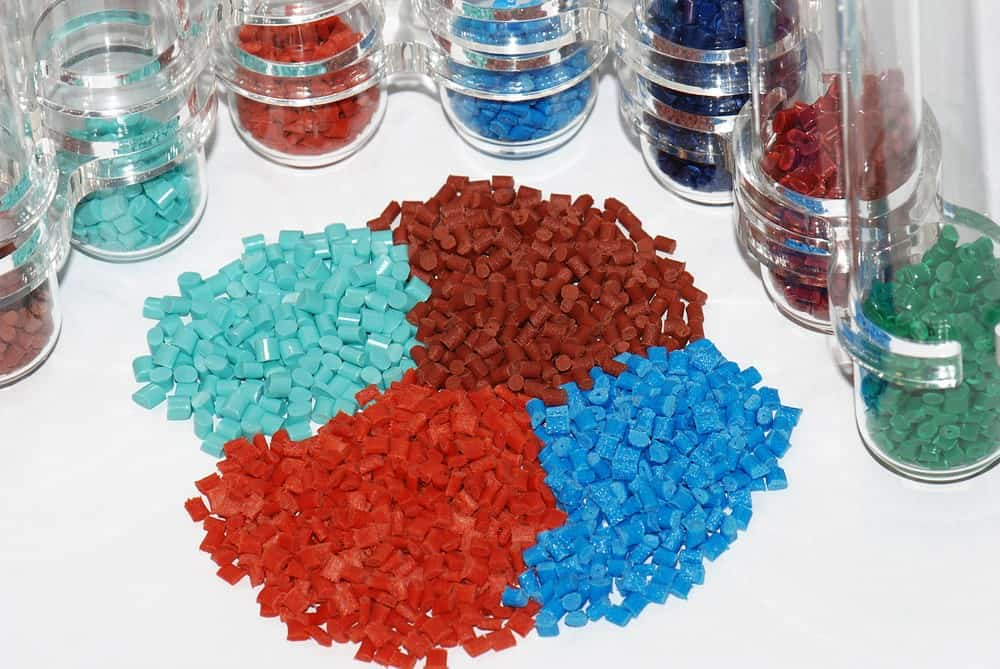
· Polycarbonate
Polycarbonate is a strong polymer made by condensing bisphenol A and phosgene. It is highly transparent, tough, flame retardant, shatterproof, and abrasion-resistant. Polycarbonate is a good alternative to glass and sterilizable using steam at 120°C, gamma radiation, or chemicals.
The medical industry favors it for its high strength, good heat resistance, and biocompatibility. Hence, they are applicable in making medical components such as IV connectors used in renal dialysis, cardiac surgery
Advantages of Medical Grade Plastics in the Health Care Industry
Aside from the inherent properties of medical-grade plastics, the healthcare industry uses them for different reasons. Below are a few advantages of plastics.
· Versatility
Medical plastic polymers are highly moldable into a different shapes. Therefore, there is an increase in innovation and its versatile use in medical technology. Due to their versatility, medical polymers are suitable for making many medical parts. Examples include bedpans, inhalation masks, IV tubes, and catheters.
· Easy Sterilization
Sterilization is an important term many medical component manufacturers consider during manufacturing. Depending on whether they are chemical or heat resistant, most medical grade plastics are sterilizable. Aside from that, they have a low cost rendering them suitable for making products for one-time use.
· Infection Resistant
Medical product manufacturers have also created plastic materials, such as microplastics, to reduce bacteria by 99%. This plastic surface has anti-microbial properties due to certain modifications so that it can repel or kill any bacteria on them.
This plastic does not require regular sterilization, yet it is largely infection-resistant. They reduce sterilization costs, prevent cross-contamination, and speed up new medicines research.
· Cost-Effective
Using plastic in making medical parts is cost-effective. The material cost is low, and the manufacturing cost is economical due to large production. Also, they are corrosion resistant, shatterproof, biocompatible, and can also handle repeated sterilizations. This property is like metal and glass, although they have a lesser cost. Therefore, the health industry can reduce manufacturing costs, and patients can enjoy health care services at lower costs.
· Environment friendly
Most medical thermoplastics are recyclable. For example, polypropylene melt under heat and is shapeable using any manufacturing process. During the manufacturing process, remnant and unused plastic polymers are reusable. This is unlike other materials such as glasses and metals that need proper disposal methods. Consequently, the manufacturing process is cost-effective.
· Scope of Innovation
With newer manufacturing methods such as 3D printing, manufacturers have an inexpensive way to widen their scope of innovation. For example, the health industry now uses plastic prosthetics and implants instead of latex.
RapidDirect – Injection Molding Services
Medical graded plastics are biocompatible, versatile, and environmentally friendly. Therefore, applicable in making several products. They are also moldable into different shapes, shatterproof, etc.
There are many medical polymers, and it might be challenging to choose the right one for your project. According to enthusiasts, the general saying is that ” to get the most from medical graded plastics, you need the most compatible manufacturing service.” In that case, RapidDiect can help you select the right materials from a wide range of plastic materials.
We offer plastic injection molding services for non-medical and medical applications. Upload your design on our online quotation platform and get your quote and DfM analysis in a few hours. You can also configure your order and confirm the production status after ordering your parts.
Conclusion
Medical graded plastics are applicable in making products such as plastic gloves, plastic syringes, and other surgical tools. They differ from conventional plastic polymers as they should be biocompatible. To select the right plastic material for your medical product, this article introduced a list of medical-grade plastics, their types, and their advantages. Do you have a question about the types of plastic used in medical devices? Kindly reach out to us.
FAQs
No, not all medical grade plastics have the USP Class VI approval as there is no general agreement on what a medical grade means. Consequently, medical grade polymers have different performances and quality. The USP Class VI or the USP class testing requires that materials exhibit low levels of toxicities. Therefore, you need an expert team with knowledge about the requirement. Contact RapidDirect for more details.
The ISO 10993 certification verifies whether a medical device is biocompatible, with the best plastics of medical devices being highly biocompatible. The term biocompatibility is the same for every material and means that the device is compatible with the human body. Evaluation of the ISO 10993 certification extends to constructing the medical plastic polymer and other materials such as additives, packaging, and degradation products.
